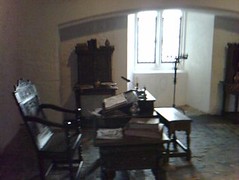That’s never been a problem for me, and query letters, but selling work before it’s done does scare some people. You can always create an outline of your idea first, if that makes you feel more secure. But let me tell you… Once you start writing every day and writing professionally, you’ll be able to write any time of the day or night, on command, about anything you’ve already researched.
But let’s talk about writing a query letter that will get your idea noticed and have the editor thinking that it’s better than any he or she has seen that day.
First, research your market. We’ve talked about this before. If a magazine has done an article on the five reasons why teens can’t get along, you don’t want to send them anything remotely similar. Think of something new or find a non-competing magazine and send it there.
Then, when you’ve found the ideal magazine for your work, write your query letter. Here are the parameters:
Paragraph 1:
- Present your idea in a story-telling sort of way. Get the editor’s interest piqued.
- Use a catching first sentence, and continue the paragraph by describing the article or the book premise in brief.
- Make the hook powerful by using strong verbs and nouns.
- Statistics and quirky facts are good inclusions in the hook because they prove that the project has been well planned.
Paragraph 2:
- Give some specifics. Tell editors what audience the article will address. Will they be men, women, or a combination of both? Or will they be children? Of what age range?
- What is the proposed word count?
- Why is this particular article or book suited to the magazine or the book publisher?
- What will make the idea important and readable? In other words, why should editors want to read the completed article or book proposal? If they decide to publish, why will their readers be interested? What makes this work special? Is it filling some niche?
Paragraph 3:
- Present pertinent credentials. Here, writers provide information about their similar work, published in the past. Then, in this order, they list publishing credits: books, magazines, newspapers, newsletters, etc.
- Discuss special background for writing the proposed article. For example, if the proposed article is scientific, writers should tell editors they are scientists.
- When publishing credentials or expertise is lacking, this paragraph may be omitted. Other work experience, unless germane to the topic presented, is of no interest to editors. Stick to accomplishments having to do with writing only.
Paragraph 4:
- Ask editors if they are interested in the idea, and advise when the article can be ready for submission (immediately, in 4-6 weeks, etc.). Then stick to that deadline.
That’s it! Your query letter should be no longer than one page and be “punchy,” meaning you want it to really grab an interested reader and make them read through to the end. Use your style, but be businesslike. A query isn’t fiction, it’s a business letter, no matter what you’re proposing.
Just follow this outline to write a great query letter and really sell your idea. Make it better than anyone else’s in the bin to get the writing job.


